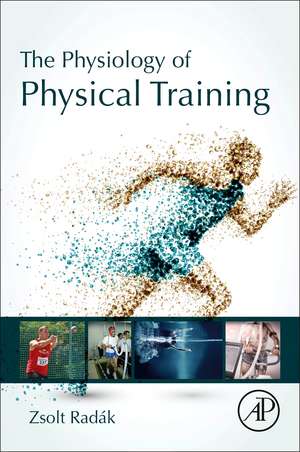The Physiology of Physical Training
Autor Zsolt Radáken Limba Engleză Paperback – 7 iun 2018
- Describes exercise-induced adaptation, from the cell to the whole body
- Demonstrates practical applications of exercise for injury, disease prevention and improved physical performance
- Fully integrates the knowledge of molecular exercise physiology and training methods
Preț: 685.79 lei
Preț vechi: 962.67 lei
-29% Nou
Puncte Express: 1029
Preț estimativ în valută:
131.24€ • 142.51$ • 110.24£
131.24€ • 142.51$ • 110.24£
Carte tipărită la comandă
Livrare economică 15-29 aprilie
Preluare comenzi: 021 569.72.76
Specificații
ISBN-13: 9780128151372
ISBN-10: 0128151374
Pagini: 280
Dimensiuni: 152 x 229 x 24 mm
Editura: ELSEVIER SCIENCE
ISBN-10: 0128151374
Pagini: 280
Dimensiuni: 152 x 229 x 24 mm
Editura: ELSEVIER SCIENCE
Public țintă
Researchers of physiology/kinesiology and human kinetics, practicing coaches, graduate students and sports medicine specialists.Cuprins
1. Basic cellular functions, cellular adaptation, and metabolism2. Skeletal muscle, function, muscle fiber types3. Adaptation, phenotypic adaptation, fatigue, overtraining4. Fundamentals of strength training5. Fundamentals of endurance training6. Speed as complex conditional ability7. Fundamentals of joint flexibility8. Diet and sport9. Physical training and prevention10. Physical training and aging11. Sport genetics
